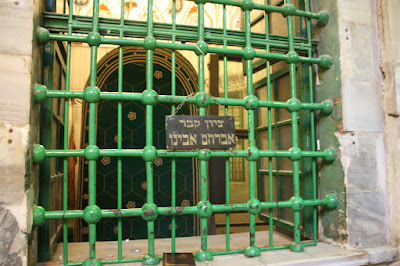by Baruch Gordon
Baruch Gordon considers why the Red Heifer ritual is mentioned at the end of the 40 years in the desert, as opposed to the rest of the Temple rituals mentioned in Leviticus. Hint: It has to do with body building, not going to the bathroom, and - you guessed it - the Land of Israel.
[3-minute video]





